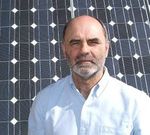Mini-grid Webinar Series
|
Mini-Grids Webinar Series |
Renewable energy mini-grids are a widely discussed solution for cost-effective and reliable energy access. However, within the mini-grids dialogue micro and mini hydropower (MHP) is often overlooked, despite the large number of beneficial projects operating globally, particularly in rural regions of Asia, Africa, and Latin America.
Many MHP systems originated as water mills that were upgraded to generate electricity (e.g. Afghanistan, Pakistan, and northern India). Some have transitioned from isolated mini-grids to grid-interconnected systems (e.g. Indonesia and Sri Lanka). As a proven technology with a long track record, micro/mini hydropower is the focus of this webinar series, which will also analyze similarities and differences among the various mini-grid technologies.read more
Each webinar in the series will focus on a distinct and relevant topic, namely Technology Differentiation, Grid-Interconnection, and Productive End Use.
The objectives of this webinar series are to strengthen the sector by:
a) facilitating exchange among field practitioners, regional and international experts
b) creating awareness on up-to-date developments, barriers and opportunities.
[1] In this context, micro hydropower refers to <100kW, and mini hydropower refers to 100 - 1000 kW (or 1MW).
1st Webinar: Technology Differentiation
1st Webinar: Why do mini-grid technologies -- PV, biomass, diesel, micro/mini hydro, wind, and hybrid systems -- need to be differentiated?
Thursday, 4 May 2017 at 2:00 p.m CEST.
Register: https://attendee.gotowebinar.com/register/992555916115887619
“Mini-grids” have become increasingly popular in recent years because of
- The enormous cost of grid extension in rural areas as well as
- The limitations of household systems (e.g. solar home systems).
Often mini-grids based on different energy sources are simply lumped together when it comes to project and program design, calls for proposals, and in legal and regulatory frameworks. However, all mini-grids are not all the same. This webinar will highlight the important technical and non-technical features, as well as pros and cons of different technologies to create awareness on the need for differentiation of mini-grid systems.
Main objectives of the webinar are to provide: an impartial assessment of different RE technologies for electricity generation in mini grids based on facts and figures and experience from different countries, an overview and framework for comparison (pros, cons, ranges for specific cost per kW, generation cost per kWh, cost drivers, variability of the resource and related storage requirements etc.) key points to be considered when designing rural electrification programs to leave the option for different RE technologies
This webinar on mini-grid technologies is the first in a series of three webinars on mini-grids. Stay tuned for our upcoming webinars -- Grid Interconnection (June 2017) and Productive End Use (July 2017).
Speakers
| Bikash Pandey is Director of Innovations for the Clean Energy, Environment and Water group at Winrock International. Pandey’s work experience encompasses 20 years in policy review, design and implementation of a range of clean/renewable energy projects in Africa, Latin America and Asia. A technical specialist in micro- and mini-hydropower systems, he has designed and implemented numerous community-based electrification, clean transportation projects, small-scale mini-grids, and home energy systems. He has extensive experience in developing small-scale renewable energy projects as activities under the Clean Development Mechanism. He also brings experience encouraging policy change within governments, bilateral and multilateral donors to support clean energy. He holds a master’s in energy and resources from the University of California at Berkeley, and a bachelor’s in electrical engineering from MIT. | |
| Xavier Vallvé holds engineering and Master’s degrees from the University of Waterloo in Canada and is co-founder and director of the engineering and consultancy firm Trama TecnoAmbiental (TTA) in Barcelona, Spain.He has more than 25 years of experience in renewable energy rural electrification and distributed generation projects, autonomous as well as grid tied, RE hybrid technology for islands and isolated villages. This involves complementary interdisciplinary activities in economic, social and management aspects as well as engineering in RE generation and storage. He has been project director or lead consultant for private and government clients and also for projects by UNDP, UNOPS, UNIDO, UNEP, AECID, IDB, WB, EC, IRENA and other agencies. He is director and lecturer of the Master degree “Master en Ingeniería y Gestión de las Energías Renovables” at IL3 (University of Barcelona). Member of ARE (Alliance for Rural Electrification), Member of the Board of Secartys | |
|
Pol Arranz-Piera has over 17 years experience in renewable energy engineering and consultancy projects. Since 2002 he has been working for Trama TecnoAmbiental, where he currently serves as Projects Director. He also collaborates as an Associate Researcher at the Technical University of Catalonia (UPC). Mr Arranz-Piera has worked in off grid mini-grids since 2004 in Perú, Ecuador, Nicaragua, Ivory Coast, Costa Rica, Paraguay, Morocco, Guinea Bissau, Burkina Faso, Sierra Leone, Kenya, and is currently supervising the GEDAP pilot mini-grid project in Ghana |
2nd Webinar: Grid-Interconnection
As governments worldwide prioritize rural electrification, an increasing number of mini-grids built for rural communities are facing the “question” of what happens to the mini-grid when the national grid arrives. Whether this is a serious problem or rather a big opportunity for the community will depend on a number of parameters. This second webinar in the series will include examples from Indonesia and Sri Lanka where micro hydropower systems have been successfully connected to the national grid and even benefited the local community. For each of the two cases, country experts will describe how micro hydropower developed in their country, what happened when the grid arrived, as well as the current conditions for grid interconnection (e.g. feed-in tariff, technical requirements and economic aspects).
Speakers
- Kapila Subasinghe, Head of Consulting, DFCC Bank, Srilanka
- Chayun Budiono
Additional resource person
- Jiwan Kumar Mallik
- Sherzad Ali Khan
3rd Webinar:Productive End Use
Once implemented mini-grids need to be financially sustainable. Their operation and maintenance costs are recovered from tariffs, which depend on power consumption. Providing only lighting is a missed opportunity to bring optimal impact to economically marginalized rural communities. Micro/mini hydropower can generate many kWh's -- we need to learn how to make use of them! Productive End Use (PEU) of energy refers to activities that increase income or productivity in different sectors such as agriculture (e.g. irrigation, grain milling), manufacturing (e.g. carpentry, welding, and sewing), and the service sector (e.g. restaurants using electric lights, sound systems, refrigerators, mobile charging stations). This third webinar in the series will focus on PEU of mini/micro hydropower systems. It will examine the social and technical pre-conditions, such as load management and technical reliability, and options such as mechanical drive for agricultural processing. The increase of load factor through PEU and corresponding increase of the economic viability of the system will be discussed. The webinar will include three examples of systems promoting productive end use in different countries. It will present pros and cons of electrifying "existing activities” versus “new businesses”.
<headertabs></headertabs>






















